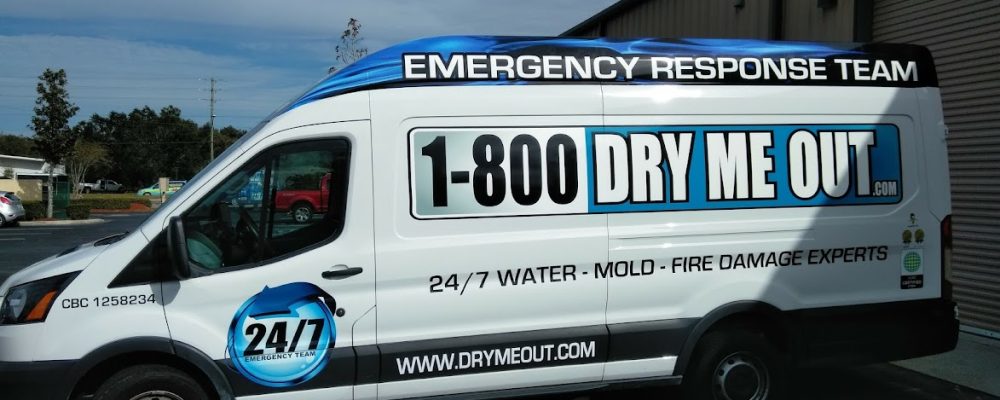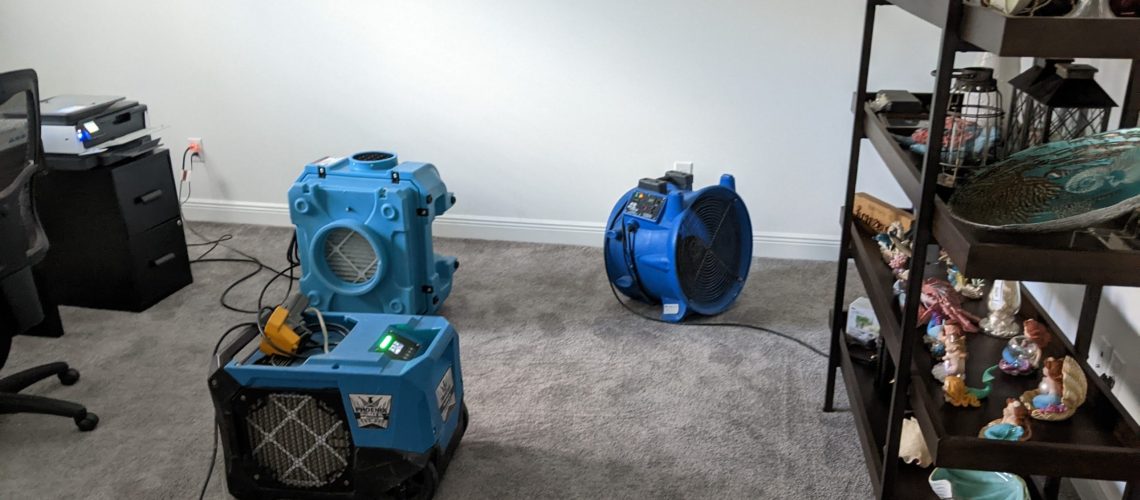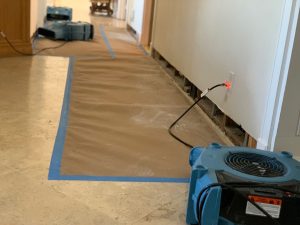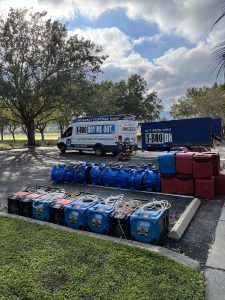The rainy season can be a relief after hot, dry months, but it can also bring a whole lot of trouble if you’re not prepared. At Dry Me Out, we’ve seen firsthand how quickly water damage can take over a home or business. A small leak can turn into a major headache if it’s not caught early. That’s why we’re here with helpful, practical advice to help you stay dry, protect your property, and avoid costly repairs this rainy season.
Let’s walk you through everything you need to know to keep water out, and peace of mind in.
Key Takeaways
- Clean your gutters and downspouts regularly to prevent water from pooling near your foundation.
- Seal cracks in walls, windows, and foundations to stop water intrusion.
- Inspect your roof before heavy rain to check for leaks or damage.
- Test and maintain your sump pump to avoid basement flooding.
- Store valuables in waterproof containers and off the floor.
- Control indoor humidity to prevent mold and mildew.
- Grade your yard properly so water drains away from your home.
- Use water leak detectors near appliances and pipes.
- Inspect plumbing and appliances for signs of leaks or wear.
- Have an emergency plan and professional help ready in case of flooding.
Check Your Gutters and Downspouts
When it rains, your gutters are your first line of defense. If they’re clogged or damaged, water has nowhere to go, and it’ll find its way into places it shouldn’t, like your walls, ceilings, or foundation.
What to do:
- Clean gutters before and during the rainy season as needed.
- Check for leaks, holes, and sagging sections.
- Make sure downspouts are pointing at least 3 feet away from your home’s foundation.
If water is pooling around your home after a storm, it’s a sign your drainage system needs attention.
Seal Cracks and Gaps
Even the tiniest crack in your foundation or wall can let rainwater sneak in. Over time, that moisture can lead to mold, mildew, and even structural issues.
Where to check:
- Windows and door frames
- Foundation walls and floors
- Basement walls and floors
- Around pipes entering your home
Use weatherproof caulking or waterproof sealants to seal up any suspicious areas.
Inspect Your Roof (Even If It “Looks Fine”)
Your roof takes the brunt of the storm, and a damaged or aging roof can lead to serious leaks. Unfortunately, many homeowners don’t know there’s a problem until water starts dripping from the ceiling.
Tips from our team:
- Schedule a professional roof inspection before the season hits.
- Look for missing or damaged shingles, soft spots, and rusted flashing.
- Keep tree branches trimmed away from your roof to prevent damage during storms.
Know Your Sump Pump (If You Have One)
If your home has a basement, you might have a sump pump installed to prevent flooding. But like anything mechanical, it can fail, especially when you need it most.
To stay safe:
- Test your sump pump by pouring water into the pit and watching if it activates.
- Make sure it’s plugged in and the power source is working.
- Consider a battery backup in case of power outages.
Though sump pumps are most generally used in underground spaces, which we don’t have too much of in Florida, it’s still important to mention for all of you readers out there!
Protect Important Belongings
Water damage doesn’t just affect the structure of your home, it can also ruin your most valuable belongings. Make sure sentimental or essential items are stored safely.
Storage tips:
- Store important documents, electronics, and photos in waterproof containers.
- Keep valuable items off the floor, especially in basements or garages.
- Use shelving or plastic bins instead of cardboard boxes.
A little prevention goes a long way in protecting what matters most.

Keep an Eye on Indoor Humidity
Even if your home doesn’t flood, excess moisture in the air can lead to mold and mildew growth. Us Floridians have an uphill battle against these issues, too, as it’s generally quite humid all year round. That’s why it’s just as important to control indoor humidity as it is to stop leaks.
What you can do:
- Use a dehumidifier, especially in damp areas like basements or bathrooms.
- Open windows or use exhaust fans to improve ventilation during dry spells.
- Keep furniture a few inches away from walls to allow air circulation.
Aim for indoor humidity levels between 30% and 50%.
Grade Your Yard for Better Drainage
The way your yard slopes can affect how water moves during a storm. If the ground slopes toward your home, you’re more likely to deal with flooding.
To fix poor drainage:
- Re-grade your yard so water flows away from your foundation.
- Use landscaping solutions like swales or French drains.
- Add gravel or porous surfaces to improve absorption.
These solutions don’t just prevent water damage, they can also boost your curb appeal.
Install Water Leak Detectors
Technology can be a real game-changer when it comes to avoiding water damage. Leak detectors alert you to moisture where it shouldn’t be before it becomes a major problem.
Where to place them:
- Under sinks
- Near water heaters and/or HVAC systems
- Behind appliances like dishwashers and washing machines
- In basements or crawl spaces
Some detectors even connect to your phone, so you can be alerted remotely.
Check Plumbing and Appliances
Leaks don’t always come from outside. Some of the worst water damage we see comes from faulty plumbing or failing appliances.
Prevention checklist:
- Inspect hoses and connections on your washer, dishwasher, and fridge.
- Replace old or brittle hoses.
- Check under sinks regularly for signs of dripping or moisture.
- Don’t ignore unusual noises or water pressure changes.
Addressing small plumbing issues early can save you thousands in repairs.
Be Ready with an Emergency Plan
Despite your best efforts, sometimes water damage still happens. Whether it’s a flash flood or a burst pipe, being prepared can make a big difference in how quickly you recover.
Your rainy season emergency plan should include:
- The contact info for a trusted water damage restoration company (like Dry Me Out!)
- A list of emergency supplies (towels, buckets, wet vacs)
- Knowing how to shut off your water main and electricity
When disaster strikes, acting fast helps limit the damage and costs.
Why Professional Water Damage Help Matters
Even a small water issue can lead to mold, structural problems, or major repairs if not handled correctly. At Dry Me Out, we specialize in professional water damage restoration, and we know what to look for, how to dry things out properly, and how to prevent future issues.
Our team is available 24/7, and we respond quickly because every minute counts when it comes to water damage. We use industrial-grade equipment, thermal imaging, and moisture meters to make sure the job is done right the first time.
If you’re facing water damage, or just want an expert opinion before the rainy season gets into full swing, we’re here to help.
Final Thoughts from Dry Me Out
The rainy season doesn’t have to be stressful. With a little preparation and some expert advice, you can protect your home, your belongings, and your peace of mind. And if something does go wrong, you don’t have to handle it alone.
At Dry Me Out, we’re more than just a water damage restoration company. We’re your neighbors, and we’re here to help when you need us most.
Let’s keep your home dry, safe, and stress-free this season. If you need help with water damage or want more advice from the pros, don’t hesitate to reach out to us anytime.




